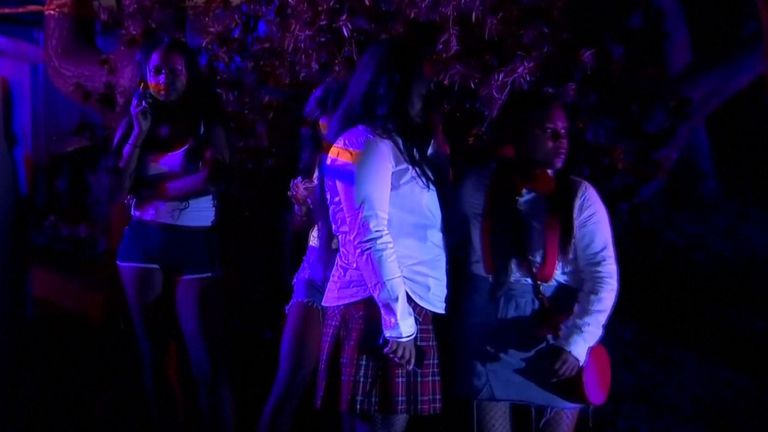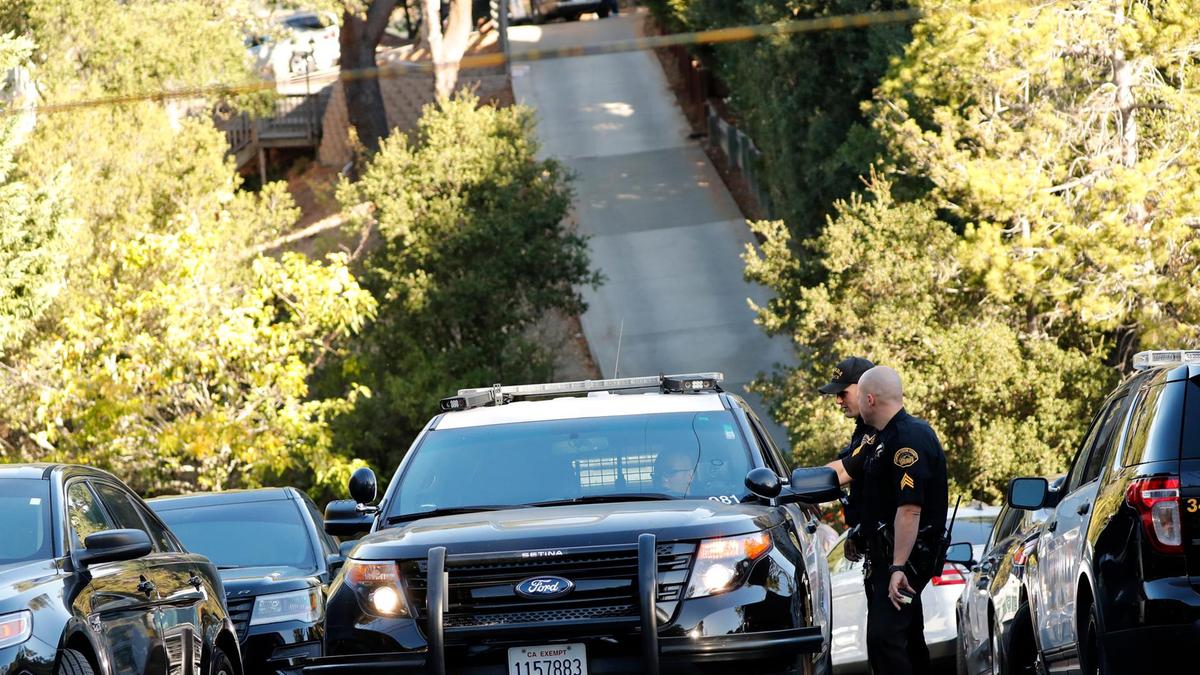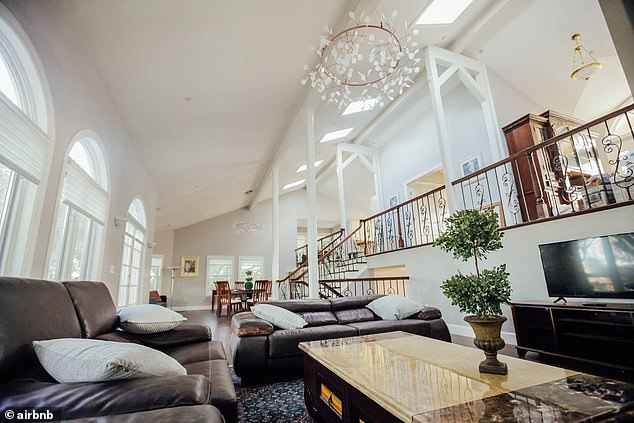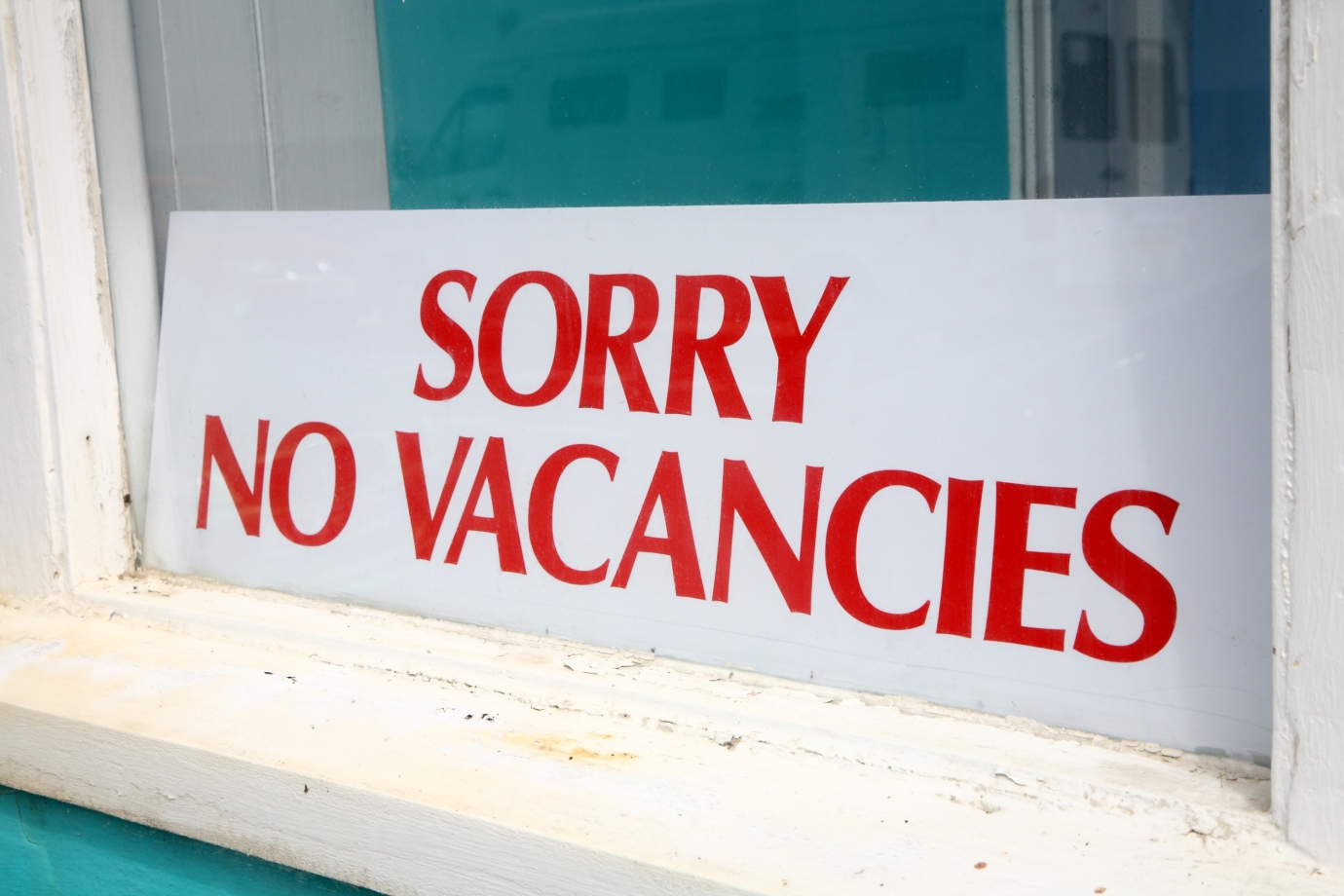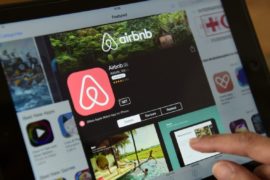Orinda was ranked one of “America’s friendliest towns” by Forbes and hasn’t recorded a homicide in nearly a decade, and so this posh community was an unlikely place for a mass shooting in a short-term rental.
While Airbnb advertises its value as helping make sharing easy, enjoyable and safe, it was sheer panic when a quiet Halloween was disturbed as jolted neighbors heard screams and the sound of bullets at a party around 10:50 pm, sadly taking the lives of five young people and injuring several others.
The Halloween horror took place in a spacious home nestled on the hillside at 114 Lucille Way. After the mansion was listed on Airbnb by owner Michael Wang , a Lafayette woman was all too willing to rent this gem, purportedly telling the owner that her asthmatic family needed a dwelling with fresh air to escape wildfire smoke.
In planned attendance would be 12 guests, just one shy of the maximum occupancy limits found in Section 17.3.12 of the Orina Municipal Code, but did this storyline smell a little fishy?
Daniel Bornstein said that a one-night rental on a Halloween night in suburbia should have raised eyebrawls, telling KTVU Fox 2 that greater scrutiny should be applied to ensure Airbnb is a good citizen.
13 is enough
Cities have wide latitude in enacting ordinances that regulate the modern-day iteration of the temporary flop and in Oriana, the number of occupants is capped to 2 people per bedroom, plus 3 additional people. As for the Lucille Way property, only 13 people would be allowed on the premises under the city’s formula.
Notably, owners are bound by stipulations made in the city’s Short-Term Rental Registration and Transient Occupancy Tax Registration Certificate Form and must attest their compliance with noise and parking regulations, among other rules. With everything in order for the get together, the transaction proceeded without complication.
A close-knit family reunion seemed innocuous enough, but what actually followed was a steady stream of over 100 revelers into the doors after responding to a widely promoted “Airbnb mansion party.” Take a look at the viral flyer that was purportedly used to publicize the doomed event on Instagram. BYOB and BYOW stands for “bring your own booze,” and “bring your own weed,” never a good omen for unsuspecting owners who hand over the keys.
 Who will pay for ‘Airbnb Mansion Party’ deaths, injuries?
Who will pay for ‘Airbnb Mansion Party’ deaths, injuries?
This is the provocative headline question posed in a San Francisco Chronicle article that enlisted answers from a panel of attorneys, Daniel Bornstein among them. The consensus? It is unlikely that any criminal charges will be filed against the homeowner, renter, or anyone other than who pulled the trigger, or accomplices that aided in the shooting.
“Individuals are generally not liable for the criminal conduct of third parties,” Daniel told the Chronicle, though homeowners can be criminally culpable if there is a foreseeable threat to short-term rental visitants and this threat is ignored.
For example, if the owner of a short-term rental knows that a balcony is structurally unsound, lists the property on a home-sharing platform, and people then fall when the balcony collapses, this can rise to the level of a criminal act. Or, if the owner rents to groups that are known to have “bad blood” and there is a reasonable expectation that a fight will break out, it may be criminal to put together this toxic brew of people. This doesn’t appear to be the case at hand, though.
When short term rentals go horribly wrong, all parties tend to retreat into a shell and use the common narrative that “it wasn’t me,” and we would expect nothing less in this case. Before we test that defense, let’s look at where everyone stands on the firing squad in any inevitable lawsuit.
Poll: Americans strongly support reforming federal law to rein illegal short-term rentals
Does the buck stop with the homeowner?
When bodily injuries occur in a short-term rental, most claims would be governed by premises liability law, a subset of personal injury law. Premises liability law is based on the notion that property owners have a legal duty to keep lawful guests safe. In the eyes of the law, Airbnb guests are considered “invitees” and as such, are afforded a high degree of legal protection.
The riddle to solve is whether the owner’s negligence caused or contributed to the havoc wreaked in the rental home . California Civil Code 1714(a) makes it clear that:
“Everyone is responsible, not only for the result of his or her willful acts, but also for an injury occasioned to another by his or her want of ordinary care or skill in the management of his or her property or person…”
The plaintiff must prove four elements, two of which should be clear cut in this massacre. The homeowner owned, leased, occupied, or controlled the Airbnb-listed property and certainly, the plaintiff or plaintiffs were harmed when invitees perished.
What is left for a judge or jury to decide is whether the owners were negligent in the use of maintenance of the property, and this negligence was a substantial factor in causing the plaintiff’s harm. This will have to be aired out in court, and what we have in law is competing narratives.
We know from the news feed what the owner’s account is. He claims that after receiving noise complaints from neighbors, he checked his home security cameras. After discovering a raucous party, the owner told the Chronicle, he called the police and was en route to the scene at the first sign of distress, but not before a hail of gunfire erupted.
“We called the police. They were on the way to go there to stop them, but before we got there the neighbor already sent us a message saying there was a shooting,” he was quoted as saying. Whether the owner’s watchfulness, attention, caution and prudence (what we call a duty of care) is enough to let the owner off the hook will be litigated in court.
In the blame game, the owner points the finger to Airbnb, saying that homeowners “can’t control” who rent their homes on the platform. “Airbnb does not release the customer information before they really book, so we have no way to know. We also tell them there’s a maximum [number of] people and no parties, but people lie.”
Airbnb will take exception, arguing it is not a puppet and points out the owner is the final arbiter of who gets the welcoming mat.
Whatever plaintiffs emerge, they will surely submit that the owner should have anticipated something could go wrong at 114 Lucille Way.
The mansion has been on Orinda’s radar for some time, after the city issued citations for violating local parking ordinances and exceeding the legal capacity of the home. Neighbor complaints over noise and large congregations put the owner on notice that this was a potential party spot, let alone Halloween night, and he was obligated to take extra precaution, the plaintiffs will likely argue.
“It wasn’t me” may or may not work for the owner. With this box checked, let’s move onto Airbnb to see if they can get a black eye.
We would fully expect Airbnb to assert they were far removed from the chaos and is not responsible for the actions of gun-toting guests. The peer-to-peer sharing company was merely a conduit between the owner and errant occupants, they will say.
Airbnb didn’t pull the trigger, didn’t load the gun, but did they hand the firearm to the perpetrator by making the ‘Airbnb Mansion Party’ available for the world to see? Before testing Airbnb’s defense and examining what liability may await them, their response to the shooting and some background is instructive.
No stranger to controversy and lawsuits the world over, Airbnb’s PR machine was quick to respond in order to get ahead of the disaster and try to win in the court of opinion. Brian Chesky took to Twitter announcing a ban on “party houses” and a commitment to clean house by removing bad actors. Although we have heard these pledges before, the CEO and co-founder promises to accelerate this process in a 10-day sprint.
I have directed Margaret Richardson from our Executive Team to oversee this new team and initiate a 10 day sprint to review and accelerate the development and implementation of these new safety initiatives.
— Brian Chesky (@bchesky) November 2, 2019
Second, we are creating a dedicated “party house” rapid response team.
— Brian Chesky (@bchesky) November 2, 2019
We might express skepticism that any monumental change can be achieved easily or quickly. We noted in earlier posts that it has taken years to fight endemic discrimination in short-term rentals and bring these properties up to compliance with fair housing laws, and this bumpy road towards cultural change continues to this day.
Although the token ban on party houses and strong language was a PR necessity, it’s unclear how this disfavor against rowdy parties will be enforced, even with newfangled technology and a dedicated party house “rapid response team” being assembled. By their own admission to reporters, Airbnb said parties, weapons, smoking and marijuana were already banned under existing rules, so it now becomes a matter of increased monitoring and policing high-risk rentals.
No plans for metal detectors or drug-sniffing K-9’s in short-term rentals are being contemplated , but in an email to employees, Airbnb Co-Founder, CEO and Head of Community, Brian Chesky, shared a four-pronged plan to instill trust in an anarchy.
A donut hole in Airbnb’s litigation strategy?
When it comes to maneuvering the law, Airbnb has been proactive in suing cities that stand in the way of profits by enacting ordinances that remove lucrative, but illegal listings from their websites.
A recurring theme: invoking the Communications Decency Act, specifically one part of that act known as Section 230. That Section says that internet companies are not responsible for what users post on it. For example, if you post something defamatory on Facebook, you can be held liable, but not Facebook. Yet, many cities have punched back and debunked this logic.
There is a cogent argument that these websites do much more than publish other people’s ads. Short-term rental websites hold the hands of users, helping them register and post listings, connect hosts with prospective renters, provide a mechanism for ratings and feedbacks, and last but not least, put money in its coffers by taking a share of the proceeds. Under this theory, Airbnb is liable for facilitating third-party booking by essentially acting as a co-conspirator.
Airbnb is suing so it could illegally rent out homes in the city. Not exactly the type of behavior you would expect from good corporate citizen.
~ Miami Beach Mayor Dan Gelber (Bloomberg Law, 1/4/2019)
The courts’ interpretation of the 1996 law and the protections it affords Airbnb and its rivals has been put under a microscope, with varying outcomes. Several federal and state courts have sided with cities by agreeing the high-profile unicorn is complicit in providing aid and comfort to owners who engage in illegal rentals.
With such a horrific event on its home soil, It’s with little surprise that the City of Orinda has entered into the fray, with proposals being floated to further reign in short-term rentals, if not ban them altogether.
Following the logic that Airbnb is so hands on and more than a matchmaker, can Airbnb be held partially responsible for the shooting deaths of five bystanders and the injuries of many more? Its convoluted and ironclad “Terms of Service” says no, but given the high profile of this case, you can rest assured that disclaiming the horrific event away will not be so easy.
A mass murder is not the garden variety of damage to a property that can go away by referencing 70 pages of fine print , so we expect that there will be a fight. As Daniel told the Chronicle, “someone will have to compensate someone for the harm that was generated in that house.” Given that there is hell to pay by somebody, Airbnb is a natural target with its deep pockets.
Of course, the vast and battle-tested legal team of Airbnb is well prepared to get into the ring. While the company’s core business model is home sharing, a close second is litigation, so they will be a formidable opponent for any enterprising attorneys that go after them.
What about the renter’s fault?
Unless we are getting misinformation, there is a prima facie instance of deception on the part of the renter, who indicated the colossal home would be utilized for a small gathering of family members, only to turn into an epic party for college-aged students.
Instagram user “tonecapone300” was ostensibly the host of the party, and undoubtedly a person of interest in a criminal investigation. Whoever is hiding behind this handle, they will likely resurface in any future civil litigation as the organizer of the doomed event.
This is a perfect storm of the risk you face when you arbitrage your house on Airbnb … You may be ‘sharing’ with people who you don’t know from a hole in the head.
~ Daniel Bornstein to the Chronicle
Many hosts assume that if calamity strikes their short-term rental, it will be covered by homeowner’s insurance. Not true.
Business activities operated out of a home is likely not covered. While some policies allow owners to rent the home to a limited degree, the insurance company might require advanced notice, or to purchase a separate endorsement. A host’s personal umbrella policy may also have no protection when it comes to a business activity. Airbnb’s “host protection insurance” says it will cough up to $1 million to protect against third party claims for personal injury or property damage. This amount seems meager for the loss of five lives, and there are many loopholes, so if you are looking to rent out your home, it’s best to consult an attorney to ensure all the I’s are dotted and the T’s are crossed.
Short-term rental insurance is a topic we will take on in a future post, so be sure to subscribe, or follow us on Facebook for the latest insights.

